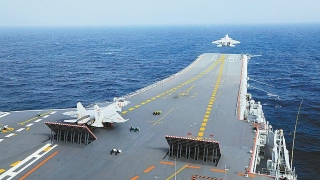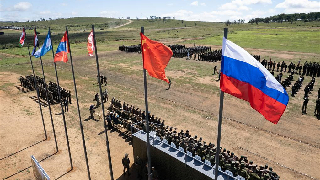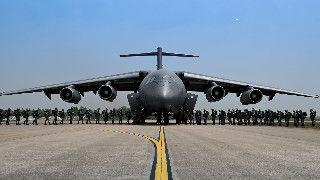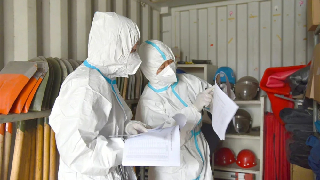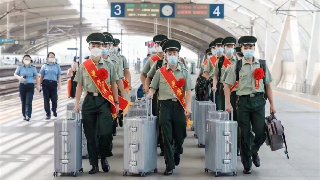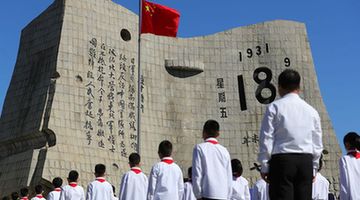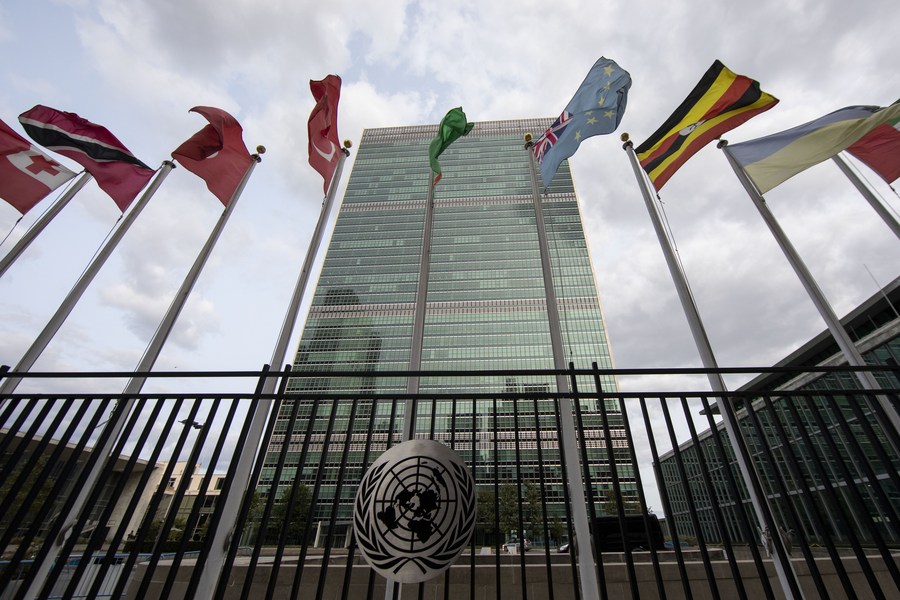
The world is struggling to contain the lingering COVID-19 pandemic, and faces an unstable security landscape and economic slowdown. It also suffers from four major deficits-peace, development, trust and governance-which are behind the global challenges and difficulties, with the peace and development deficits being the most pressing ones.
To begin with, the pandemic is eroding decades of gains in global development, making it difficult to realize the United Nations' 2030 Agenda for Sustainable Development, widening the North-South gap, and threatening food and energy security. What has complicated the matter further is some countries' efforts to politicize regional and global development, and decouple some economies from the global industry and supply chains by building "a small yard with high fences", imposing sanctions on other economies and stoking divisions and confrontations.
Needless to say, the existing world security environment is worrying. The Ukraine crisis has once again shown the huge impact regional conflicts can have on world peace. While regional conflicts and terrorism are aggravating the peace deficit, traditional and non-traditional security threats have increased uncertainties.
Some countries, in pursuit of their selfish agenda, have been stirring up troubles across the world while pursuing unilateralism, using double standard and trying to consolidate their hegemony under the guise of spreading democracy.
But despite humankind facing increasing uncertainties and encountering severe challenges, the response from the international community remains inadequate and fragmented.
It is against this backdrop that President Xi Jinping proposed the Global Development Initiative while addressing the 76th Session of the UN General Assembly in September 2021, and the Global Security Initiative while delivering the keynote speech at the Boao Forum for Asia Annual Conference earlier this year.
The GDI is aimed at helping implement the UN's 2030 Agenda for Sustainable Development and build a global community of shared development, and calls on the international community to pay due attention to the pressing needs of developing countries and advance practical cooperation in such key areas as poverty reduction, food security, development financing and industrialization, in order to promote universal development and ensure no country or individual is left behind.
The GSI advocates a vision of common, comprehensive, cooperative and sustainable security, follows the philosophy that humankind is an indivisible community with security safeguards, and aims to create a new path to security that prefers dialogue over confrontation, partnership over alliance and win-win cooperation over zero-sum games. It seeks to establish a balanced, effective, and sustainable security architecture, thus offering a new approach to eliminating the root causes of international conflicts and achieving durable stability and security in the world.
Security and development are the two key pillars of the UN's work, which are mutually reinforced and positively correlated. The best way to solve many of the global challenges is to secure peace and development.
While development is a timeless process and the master key to address security issues, security is necessary to ensure continuous development and progress. History tells us that without socioeconomic development, it is impossible to achieve long-term peace and stability. And without peace and security, it is impossible to achieve sustainable economic and social development; in fact, without peace and security, we could even lose the achievements we have already made.
Therefore, only through development can the root causes of conflicts be eliminated, and only with peace and security can development have an enabling environment.
Over the past 70 years, China has struck a balance between development and security, and created two rare miracles-rapid economic growth and sustained social stability. China has advanced from being a poor and weak country to becoming the world's second-largest economy not because of other countries' handouts, or its expansionist policies or colonial plunder, but because of its people's hard work and peaceful pursuit of development.
On the other hand, some conflict-stricken countries' economic development has stagnated or regressed. As a result, they are facing poverty and economic slowdown.
The GDI and the GSI embody China's wisdom, which can help countries address both the symptoms and root causes of their problems, set out the core concept, fundamental guidelines, important principles, long-term goals and feasible approach of upholding world security and achieving global development.
The logic behind the GDI is to "build a better world", while that behind the GSI is to prevent the world from sliding into a worse condition.
The two initiatives accord with the trend of the times featuring peace, development and win-win cooperation, and aim to seek the biggest common denominator and provide support for countries to improve the livelihoods of the people. They both uphold multilateralism, represent the global population's call for peace and development, and will help the world tackle security and development issues and build a community with a shared future for mankind.
Since the world is an indivisible community, we must rise up to meet the common challenges, rather than decoupling from each other or building "parallel systems".
The international community must be highly vigilant against any attempts to create troubles and intensify divisions and confrontations. To achieve universal security and common development, all countries need to make greater efforts to uphold multilateralism and globalization, strengthen unity, promote connectivity, and work to forge a united, equal, balanced and inclusive global partnership, helping each other and not leaving any country or individual behind.
While developed countries should fulfill their obligations, developing countries need to deepen cooperation with others. Only through cooperation and exchanges can conflicts and confrontations be avoided and common development achieved. Only when the lives of people across the world improve can prosperity be sustained, security safeguarded and human rights better protected.
Given that the world is standing at a historical crossroad, the international community should practice true multilateralism, abide by the basic norms of international relations based on the purposes and principles of the UN Charter, and champion the spirit of international solidarity and cooperation to promote world peace and security, and achieve global development.
The author is a board member of the United Nations Association of China. The views don't necessarily reflect those of China Daily.
